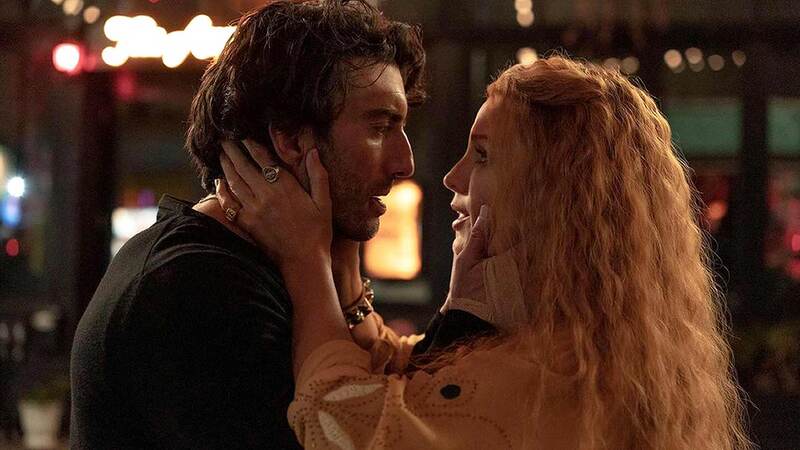You are viewing your 1 free article this month. Login to read more articles.
Radical technology
A new report has found that people prefer AI poetry to the human kind. It is based on a big mistake.
A new report claims that people can’t tell the difference between AI- and human-authored poetry. The authors of the report at the University of Pittsburgh also say their report shows that "non-experts" rate AI poetry more highly than the originals. The report, however, ignores something vital: poetry is a human art form and its measurement is not in ratings, but in enjoyment.
A few months back I wrote in The Bookseller about AI being a useful – and exciting – tool in the hands of human poets. It is the human manipulation of algorithms that turns machine-spun verse into something we can call art, making this new report something that should be interrogated. For a study aiming to stride into new territory – to cut through the cake of poetry with the sharp blade of AI – it fails instead by carrying a Best Before tag.
The study selected 10 human poets for ChatGPT 3.5 to imitate. The poets chosen should have posed an opportunity to test AI by including the work of contemporary poets, who push style and form in new ways. What might the algorithm have done with the work of Fran Lock or Verity Spott? Instead, the study used nine dead poets, seven of them male, none of them of the Global Ethnic Majority. "We aimed to cover a wide range of genres, styles and time periods", the report argues.
Poetry is about voice, and everything that is encoded in voice: heritage, experience, vision. The Pittsburgh study, while seen as a success for technology, is in fact blinkered by its limited – and old-fashioned – view of poetry itself. It fails to recognise that poetry itself is a radical technology: adapting and changing in response to the world.
The findings of the report are followed by an assumption from its writers. "So why do people prefer AI-generated poems?" they ask, answering it themselves: "We propose that people rate AI poems more highly across all metrics in part because they find AI poems more straightforward." It is also possible that the participants did not find the AI poems more straightforward – just smoother. AI draws on pre-existing texts across the internet to predict an outcome most likely to "sound right" in its newly constructed poem. Under test situations – environment poetry should never be read for pleasure – a participant would naturally choose a poem that conforms to the idea of what poetry should be. This is the irony behind the report: it is often early academic study that puts people off poetry, and here is a report singling out people defined as "non-experts" who are used to show that humans are unable yo spot a real poem when they see it.
[The Pittsburgh study] fails to recognise that poetry itself is a radical technology: adapting and changing in response to the world
When it comes to its own creativity, ChatGPT can only imitate – it cannot originate. AI can produce a convincing copy of dead greats, smoothing off the edges to maximise readability, but try asking it to write a poem with no relationship to the past. I asked it. "ChatGPT, give me a poem that’s completely new and not based on any that has come from the past". If you’ve got a cringing cushion near you, grab it now – and reach for the toe-curling slippers:
An old man
Walks past a field of glass
In the whisper of dawn
His shoes
– Slippers? –
He’s carrying something
Like a prayer
But is it?
What is this weight
That bends his back so
There are so many problems here: the mismatch between the attempted atmosphere and the choice of words – the laughable "slippers" – and the jarring, impossible image of someone carrying a prayer. And the endless questions, striving for the poetic, over-egging a technique that a poet would only give limited use. That final word "so" is a throwback to Victoriana which exposes AI as only able to produce a poem in the mould of what it is programmed to think a poem is.
Poetry should not be divided into "experts" and "non-experts"; this is an art form that comes to life for everyone in democratic, open spaces for creativity and live events, such as those staged at Southbank Centre’s National Poetry Library. Poetry should not be tested or measured like rice on a scale. If measured by anything, it should be for the enjoyment it gives – whether you have spent your whole life with it or are coming to it for the first time.
There should be a further study done of the 696 participants in the study to see if any of them enjoy poetry more than they did before, or have any more knowledge of poets or forms. The study’s requests to rate poetry across "mood or emotion", "beautiful" and "profound", would be enough to trigger Robin Williams’ character in Dead Poets Society to ask his students to smash their laptops. "Press restart boys, that’s right – do a complete system reinstall."
In a final twist, it was the poets of the past decades who always believe computers would one day have a go at poetry, no problem. Alan Turing doubted it, arguing that machines would know their limits and not bother trying.
The brilliant Scots poet Edwin Morgan was a step ahead, publishing "The Computer’s First Christmas Card" in 1965, the year the world’s first commercial 16-bit minicomputers and 172 systems were sold at a cost of $28,500.
Happy Christmas!
jollymerry
hollyberry
jollyberry
merryholly
happyjolly
jollyjelly
jellybelly
bellymerry
hollyheppy
jollyMolly
marryJerry
merryHarry
happyBarry
heppyJarry
bobbyheppy
berryjorry
jorryjolly
moppyjelly
Mollymerry
Jerryjolly
bellyboppy
jorryhoppy
hollymoppy
Barrymerry
Jarryhappy
happyboppy
boppyjolly
jollymerry
merrymerry
merrymerry
merryChris
ammerryasa
Chrismerry
asMERRYCHR
YSANTHEMUM
With thanks to Carcanet Press for permission to reproduce the poem, found in Centenary Selected Poems by Edwin Morgan, edited by Hamish Whyte.
















